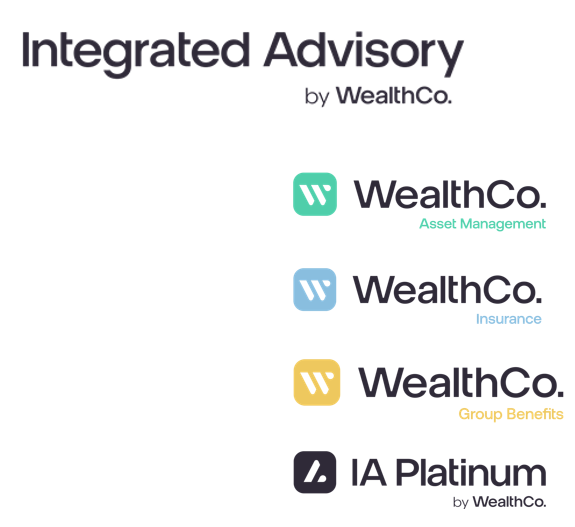Market Commentary
Beyond the Headlines: How Financial Planning and Investing Work Together
November 29, 2021
Media headlines have a way of painting a picture on what is keeping Canadians awake at night. For those with insomniac tendencies, it has been a rough fourth quarter, as these headlines confirm:
“Survey Finds 2 out of 3 Canadians Stressed About Inflation”
“Stock Market Volatility is About to Massively Ramp Up”
“Inflation is About to Get Way Worse in 2022 – and Nearly Everyone in Canada Will Feel the Pinch”
“Surging US Dollar Awakens Volatility in Currency Markets”
During these stressful times, and with it having been Financial Planning Week in Canada last month, this is a good time to reflect on how a more holistic financial planning strategy really is at the core of any strong investment portfolio.
Financial Planning as the Basis for a Sound Investment Strategy
Jumping into investing before having engaged in financial planning is the equivalent of putting the proverbial cart before the horse.
“Investing ties into planning. If you don’t know what your financial goals are, and you haven’t identified what is most important to you in your personal life, it’s hard to put together a good investment strategy,” WealthCo Founder & CEO David Udy shares. “If you haven’t identified your goals and objectives and what kind of rate of return is required to meet those, you may make bad financial decisions. Planning makes you consider those important and guiding questions - where do I want to be, where do I want to get to, and what kinds of returns do I need to get there?”
WealthCo’s Integrated Advisory approach begins with this financial plan. By working collaboratively with our CPA firm partners, we are able to better understand a client’s financial picture, goals, opportunities, issues, and needs. With this understanding firmly in hand, our team of professional advisors is best positioned to help clients achieve those financial goals, including through a robust and diversified investment strategy.
“Planning really does align with how you want to invest,” Udy points out. “So many people chase what last week or last year’s top stock market performers were, which is not a recipe for success when it comes to long-term investing success. Planning is much more than a software package that does illustrations; it is a true understanding of where people are at, where they want to go, and how to get them there.”
How WealthCo’s Investment Philosophy Delivers Peace of Mind
As the headlines corroborate, we are living in stressful times. Rising inflation and market volatility are on the minds of Canadians, many of whom are looking for some peace of mind about the state of their financial future.
“Financial planning is a great way to provide this much-needed peace of mind,” Stephen Logan, WealthCo Senior Financial Analyst, states. “Clients who work closely with a financial planner and an investment professional are able to gain access to additional insights that they may not otherwise be aware of. This greatly assists them in making more informed investment planning decisions and gives more confidence that their financial goals can be reached.”
With market volatility at an almost all-time high, and with inflation hitting a new 18-year high of 4.7% last month, there is tremendous peace of mind that comes along with understanding how your investment specialists plan to weather this instability. Our WealthCo investment experts understand this volatility and they have the investment strategies to best mitigate it.
“As part of the research process, institutional investors often weigh multiple risk factors when constructing their portfolios,” Logan explains. “One such risk factor is inflation, which is a measure of the rate of price increase for goods over a given time. Inflation is a potential risk as it reduces the purchasing power of each dollar you earn and increases the likelihood that central banks will mark-up interest rates to compensate.”
“At WealthCo, we’ve paid close attention to inflation when building out our income strategies,” Logan shares. “One way we’ve reduced our risk exposure is to build our fixed income portfolio shorter duration than the benchmark. Duration is a measure of price sensitivity to changing interest rates. Since price and Interest rates are inversely related, it means as interest rates rise, fixed income prices tend to fall. Having a portfolio built to be shorter duration means that if interest rates rise, the negative effects to our income securities will be reduced. Additionally, we have also secured positions in floating rate notes which adjust based on interest rate increases.”
In a future Market Commentary will spend more time focusing on some other specific strategies that we use to manage inflation risk.
More than ever during volatile times, it is important to work with a team that will help you stick to your plan. This is where WealthCo’s institutional asset allocation strategy and good planning comes in. By removing the emotional and fear-based decision-making capabilities and trusting in an investment plan that has considered and planned for these unfortunate market factors, you can trust that your plan will get you to where you want to be. Without the stress. No matter what the headlines are telling you.
When was the last time you reviewed your investment plan and how it fits into your overall financial plan? Are you on track to meet your financial goals? If not, take the first step in creating your integrated financial plan.

Related Posts



